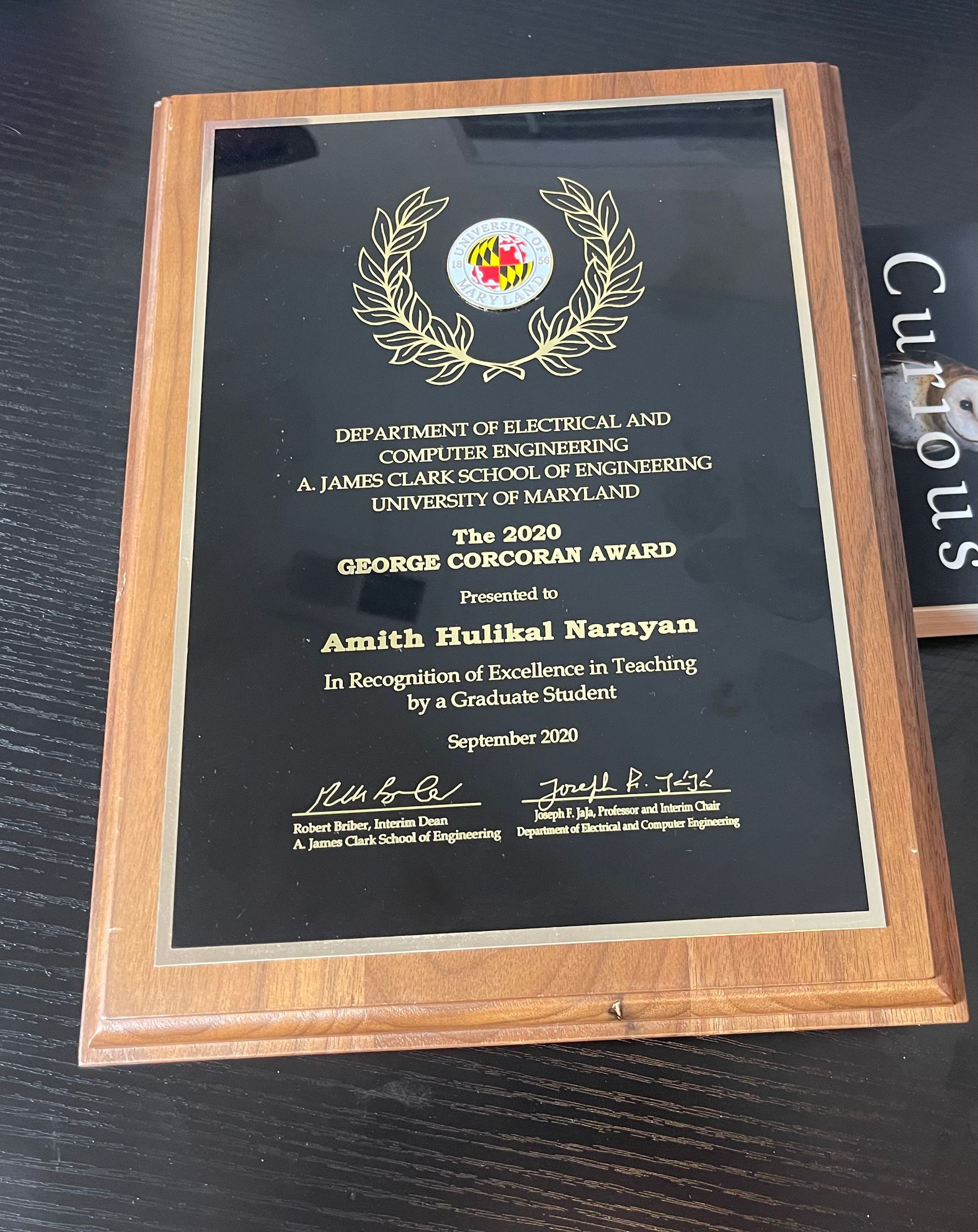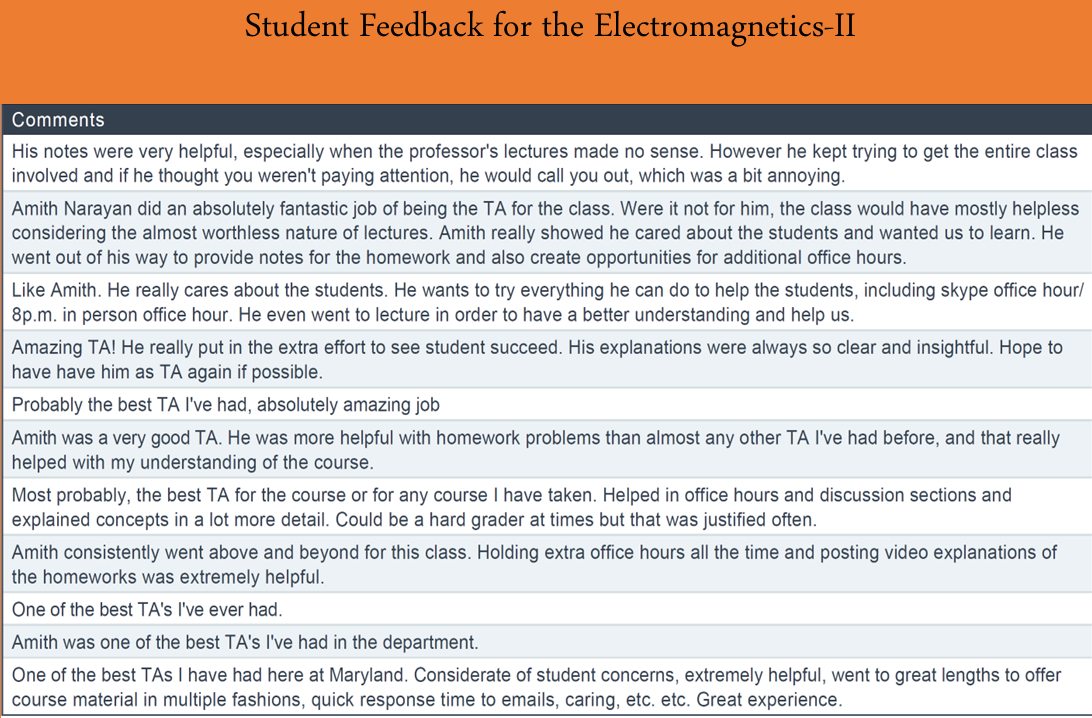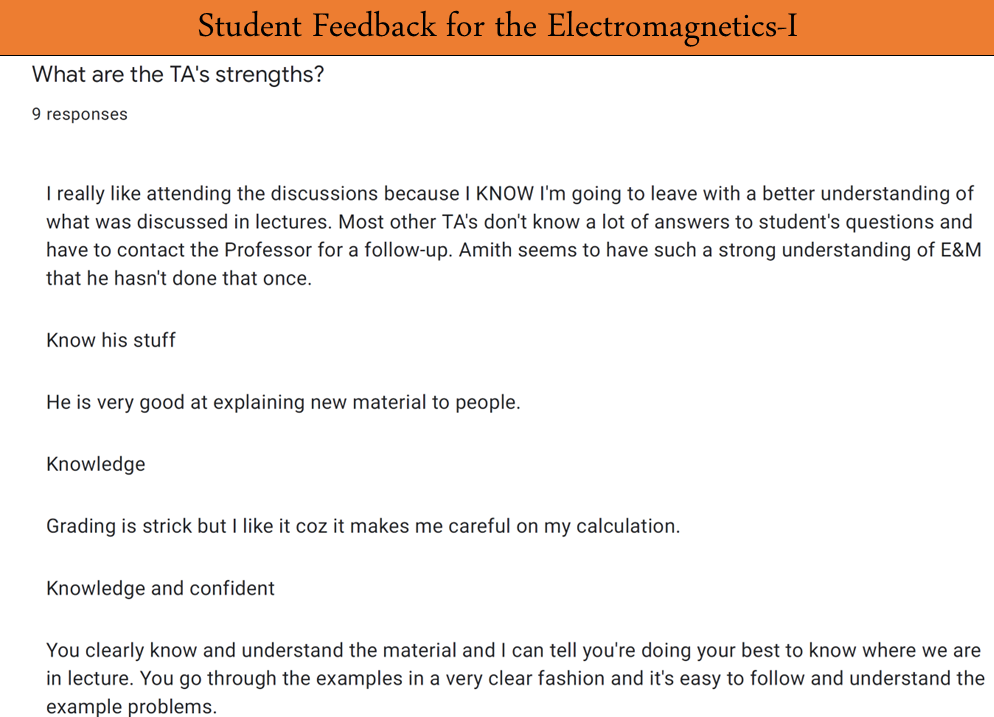Navigating Grad School: I won the Best Teaching Assistant Award, and here's how you can do it too.
Being a Teaching Assistant (TA) is inevitable for most Ph.D. students during graduate school. Being an effective TA is vital to navigating grad school successfully and pursuing a career in academia. I was a TA for the most challenging courses in Electrical Engineering and won the Best TA award.


Being a Teaching Assistant (TA) is inevitable for most Ph.D. students during graduate school. Some students find it as an opportunity when the research funds are exhausted. For other students, it’s a stopgap before identifying a research advisor. Being an effective TA is vital to navigating grad school successfully and pursuing a career in academia. I was a TA during the last year of my Ph.D. I led the discussion sessions on Electromagnetics-I & II, considered the most challenging courses in Electrical Engineering (I ran a poll to be sure!), and won the Best TA award. I have shared my learnings and hope new graduate students find it useful. To the regular reader, this might be an exercise in lateral thinking.
Handhold in the beginning!
Undoubtedly handholding is the most essential vilified trait to succeed as a TA. As universities across the country are disincentivizing teaching systematically, everybody expects young freshman and sophomore students to be independent thinkers from the get-go. In my experience, a good majority of the students need help figuring out where to start. Professors don’t have the time, and private tutors are added financial burden. TAs are in a perfect position to bridge the gap. Handhold the students in the beginning by being pretty hands-on.

In the first couple of classes, I would pick a homework problem, change numerical values, and solve every step on the board. I would extol the importance of drawing pictures & identifying symmetries. I would stop doing the trivial algebra that almost everybody learns in high school.
Be flexible with office hours. Adapt to technological advantages
At the beginning of a new semester, everyone’s life is in flux. Consequently, only some students can adhere to a single set of timings for office hours.
I always consulted students before setting up office hours and provided multiple slots. Students were very appreciative of the flexibility and used it.
Adapting to technological advances can be very advantageous at times. When COVID hit the world, we had to move all sessions online. As my regular sessions involved me solving all problems on my iPad (projected onto giant TVs in class), moving the discussion online was a piece of cake.
I could also screen-record my solution videos and post them on YouTube. I would email the notes as a pdf at the end of every session. All of this provided enormous flexibility to students amid the pandemic.
Grade for Consistency
Grades matter to students. Even underperforming students would love a good grade. Strict grading takes the fun out of the course. If we are very liberal, it could demoralize the hardworking students.
If you grade inconsistently, students might presume favoritism. Finding a balance is crucial, and failing to do that can cause a lot of friction between students and the TA.
To grade for consistency, I would evaluate every student’s solution to the same question at once. This would negate any subconscious bias associated with students’ work on previous problems.
I communicated my grading philosophy at the very beginning to students. I would grade hard the first few weeks to ensure the concepts are crystal clear and eventually relax as the semester progresses.
Don’t hesitate to experiment. Get feedback
Now and then, don’t hesitate to experiment if the existing circumstances don’t lead to optimal solutions. The key is to observe and adapt the plan based on student feedback.


As a TA for the Electromagnetics course, I was aware of the course intensity. The professor assigned 5-6 problems every week as homework assignments. If the class size were 30 students, the discussion session would be split into two groups of 15 each. I spent 1 hour with each group, going over the same material. So, I spoke to students in both classes and combined their sessions into a single 2-hour session. Everyone adjusted their schedule to do this because they found my sessions helpful. I would post my notes on the student portal to those who couldn’t.
Conclusion
The French-American historian Jacques Barzun said, “Teaching is not a lost art, but the regard for it is a lost tradition.’ After teaching for a year, I can identify three qualities to help a grad student succeed as TA. Firstly, the TA succeeds when his students succeed. Recognizing that and caring for the student’s success goes a long way in being a good TA. Secondly, communication is key to all the TA’s endeavors. Maintaining a two-way communication line throughout the semester is critical. Finally, asking for feedback and valuing their critique is vital for improvement.
If you like what you read, you should consider subscribing to my email newsletter. I send an email every week with a few thoughts, reflections, and curated links to interesting books, articles, and podcasts I've enjoyed.
Full Disclosure: Some of the links on this site are affiliate links, meaning, at no additional cost to you, I will earn a commission if you click through and make a purchase. But feel free not to use them.
